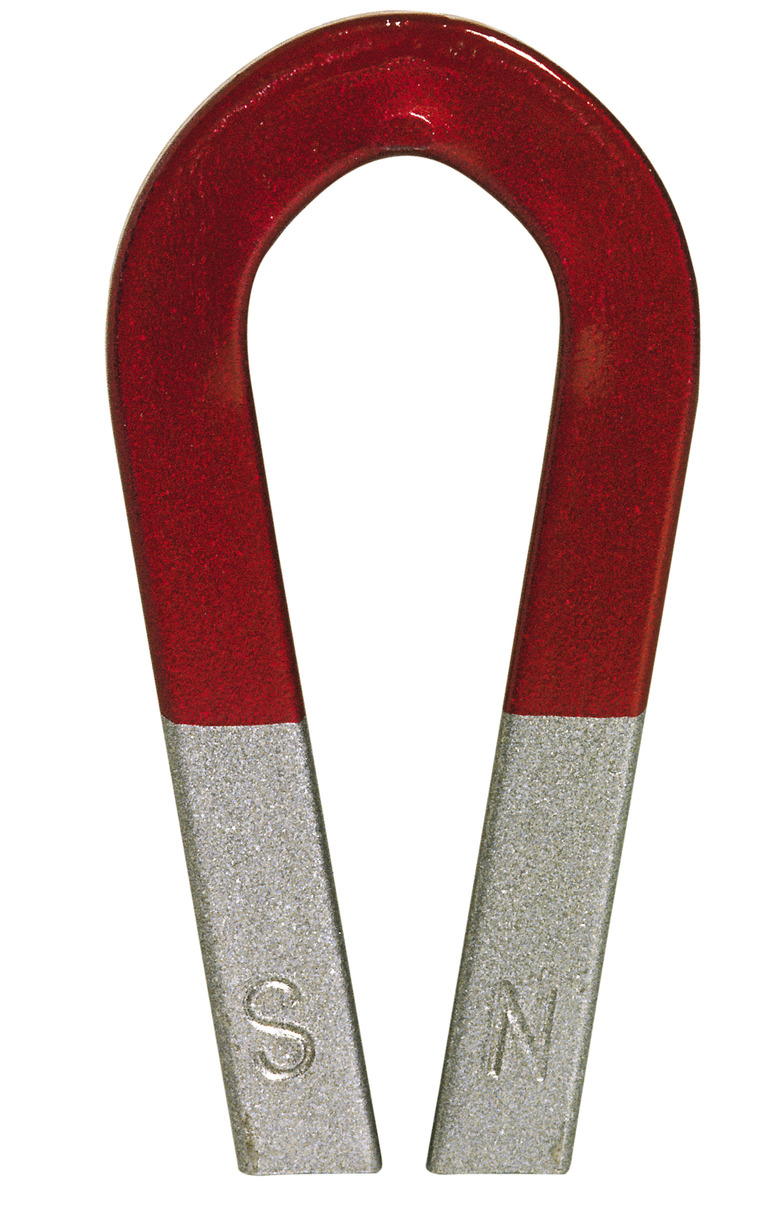Can Brass Be Magnetized?
Magnetism affects ferrous, or iron-like, metals such as iron, nickel, cobalt and steel. Brass is a combination of copper and zinc, so it technically is nonferrous and incapable of being magnetized. In practice, however, some brass items contain at least traces of iron, so you may be able to detect a weak magnetic field with brass, depending on the item.
Brass vs. Bronze
Brass vs. Bronze
As early as 3000 B.C., metalsmiths in the Middle East knew how to combine copper with tin to create bronze. Because zinc is sometimes found with tin ore, they occasionally made brass – which is an alloy of copper and zinc – by accident.
By the time of the Roman Empire, smiths had learned to tell the difference between tin and zinc ores and began making brass for use in coins, jewelry and other items. Brass itself is not magnetic, but it is stronger than copper and resists corrosion, so today it is used to make pipes, screws, musical instruments and gun cartridges.
So, what's harder, brass or bronze? The answer depends on numerous factors. The composition of the alloy and the treatment of the alloy during manufacturing impact the hardness of the metal. Brasses with higher zinc contents have higher strength and hardness, for example. In general, however, brass is softer than bronze.
Magnetic Metals
Magnetic Metals
Iron, nickel, cobalt and steel exhibit magnetic properties. The rotation and spin of the electrons in these materials generate tiny magnetic fields. Since the magnetic properties of these atoms don't cancel each other out, the material exhibits the overall magnetism of these naturally magnetic metals.
Some materials do not exhibit magnetism unless placed in an external magnetic field. This property is called diamagnetism. Copper, while not a magnetic metal, exhibits diamagnetism when exposed to a strong magnetic field.
Magnetism and Brass
Magnetism and Brass
Magnetism is a force created by the motion of electrons. In a fixed magnet, such as the ones you may have on your refrigerator, the electrons are aligned in such a way that they produce a field that draws ferrous metals and other magnets to it.
Magnets can also be created by using an electric current. Wrap a steel nail in copper wire and attach the ends of the wire to a large battery; the flow of electrons will magnetize the nail. You can try the same experiment with a brass nail to see if you get a magnetic field, but expect no luck creating a brass magnet.
Brass does, however, interact with magnets. Like copper, aluminum and zinc, brass exhibits diamagnetism when placed in a magnetic field. A brass pendulum swinging through a strong magnetic field slows down. A very strong magnet dropped through a brass pipe (copper and aluminum pipes also) slows due to the magnetic eddy currents (called the Lenz Effect) created by the falling magnet. The brass does not, however, retain any magnetic properties when removed from the magnetic field.
Rare Earth Magnets
Rare Earth Magnets
While standard magnets are made of iron or iron-containing ceramic materials, much more powerful magnets have been created using alloys of various metals. These "rare earth" magnets usually contain neodymium, iron and boron, and even small ones can produce powerful effects such as being able to move metal objects through several inches of wood.
Magnets can be made with rare earth elements other than neodymium, but neodymium magnets are the most powerful permanent magnets known. If a brass item contains enough iron, it may be attracted to a neodymium magnet.
Magnetorheological Fluids
Magnetorheological Fluids
One of the stranger magnetic types is what are called magnetorheological fluids. These are fluids – usually some sort of oil – that contain iron filings or other ferrous metals. When exposed to a magnetic field, a magnetorheological fluid will become solid.
Depending on the strength of the magnetic field, the magnetorheological substance can be quite hard, or it can be malleable, like clay, and molded into shapes. When the magnetic field is removed, however, the substance returns instantly to a liquid state.
Cite This Article
MLA
Cronn, Tad. "Can Brass Be Magnetized?" sciencing.com, https://www.sciencing.com/can-brass-magnetized-10071507/. 24 September 2019.
APA
Cronn, Tad. (2019, September 24). Can Brass Be Magnetized?. sciencing.com. Retrieved from https://www.sciencing.com/can-brass-magnetized-10071507/
Chicago
Cronn, Tad. Can Brass Be Magnetized? last modified March 24, 2022. https://www.sciencing.com/can-brass-magnetized-10071507/
